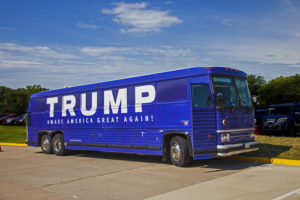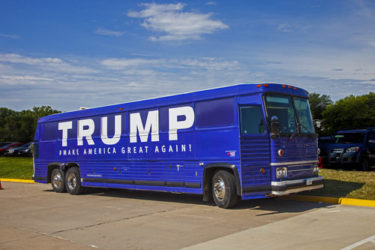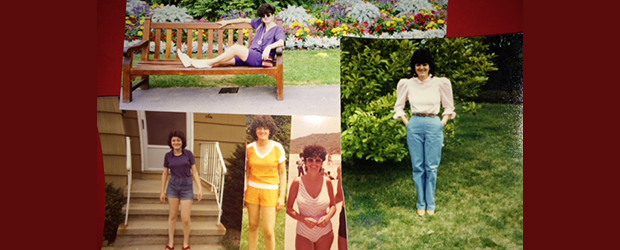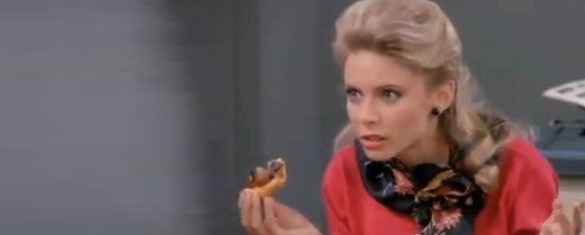
What do you now know?
Over the course of my 40-year work life, I’ve been on a fair number of job interviews. At no point did it ever occur to me to learn the political persuasion of my interviewer or to wonder about how he would cast his vote in an election.
That has drastically changed with the emergence of Donald Trump as the likely presidential candidate for a major political party in the United States. It has the potential to significantly shift how we conduct our work lives. It’s because the Trump candidacy isn’t about politics at all. It’s not even about policy. We expect to disagree with people on those things. However, Trump’s campaign is about emotion and nationalism at the expense of all else. It’s a world view lacking in discernment and humanity.
That is not to be confused with past Republican or Democratic candidates. If someone who supported George W. Bush, Bill Clinton or Ronald Reagan interviewed me for a job, I’d have the knowledge that maybe we don’t agree on much politically. That’s acceptable, healthy even. It might mean we disagree on how to solve big problems or where morality fits into government.
With Trump, and by extension his supporters, it’s markedly different.
If I am seeking a business partner, an investor, or I’m interviewing for a job with a new company and in the course of this search I find out (via social media, conversation, whatever) that the prospect before me is a Trump supporter, here’s what I immediately know:
~ The person interviewing me is OK with sweeping generalizations about Mexicans, Muslims, and probably most non-white groups. She has no problem with marginalization. In fact, it is likely the very reason she supports Trump. Or, in another scenario, she does not think marginalization is OK, but can overlook it in another person and isn’t concerned with how that person will govern and lead in spite of this narrow lens on the world.
~ The person interviewing me does not see women as equals. Period. This isn’t opinion. It’s fact. We’ve all seen the clips and quotes and heard this from Trump’s own mouth. He’s proud of everything he says and in fact doubles down on it much of the time. People who support him love that about him. He doesn’t have the self-awareness to even understand that there’s anything wrong with it. The person who supports him, the one in the interview chair, is not fazed by this. He’s on board with broads in the workplace. Ring-a-ding-ding. Come fly with me.
I understand this view of women so well. As a journalist, I’ve interviewed guys like this. I’ve worked with some, hang at the gym with some. There are some I love dearly because we share blood. But not in a million years would I trust any one of them to give a female a fair shake in the board room unless she looked like Sofia Vergara.
Trump has legitimized them just by virtue of his candidacy. His surge has brought them out of hiding and they’re wearing their sexism proudly, declaring the end of what they long ago dubbed “political correctness.” There is even a subset of people voting for him that won’t admit it. Are we to feel better because they at least know enough to be embarrassed by their stance?
The bottom line is, how can I ever trust a person who finds it easy to overlook that their candidate has mocked a war hero and a handicapped reporter, has regularly objectified women over decades, and lumps all Muslims in with terrorists? Worse yet, that they embrace him for it?
Further, it is perpetuating a false equivalency to be dismissive of all the candidates running for president with the implication that any of the current ones or those who have dropped out of the race are anywhere near as ill-conceived as Trump. I may not like my choices. That’s legitimate. But there is no intelligent argument for putting Trump in the same category as people who are serious about governing, have taken the time to craft real policies, and who understand our global challenges.
Those who support Trump do so because they want change and he says things they’ve been afraid to say for years. They live vicariously through his bravado. They’ve climbed aboard a train without knowing its destination, but boy are the drinks good and wow it’s going fast. Yeeha.
Do I respect the people on that train enough to work for them or in partnership with them? Back in the 1990s I was a newspaper columnist who sometimes addressed sexism in my columns. My traditional Italian-American father routinely hated it. I explained to him that, yes, it’s America and you have a right to your opinion. Free country and all that. But the moment you are in a position to hire other human beings, the whole scenario changes. Now we’re talking about someone who wants to lead the free world.
How would it feel to work for the Trump-loving boss? For months it’s already been a deal-breaker on dating sites – “Trump supporters need not respond to this profile.” He’s brought us a gauge for the workplace, too.
One common challenge in an interview is being able to articulate strengths and weaknesses. Another is the ability to assess what kind of person I am aligning myself with on my career path. If there’s a “Make America Great Again” hat on my interviewer’s desk, I’ll have a clear indication of the latter.
Then it becomes about my soul.






